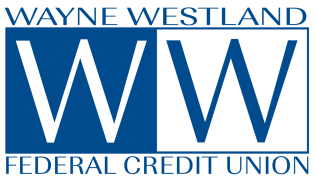By now, you’ve probably heard a lot about the “credit union difference” and how credit unions are better than banks (at least we think so!). But what does that mean to you, our members? Well, a heck of a lot when it comes to personal loans.
Consider making a credit union your first stop when shopping for a personal loan. Historically, credit unions like ours offer these benefits over banks:
- Lower interest rates even if you have average or poor credit
- Loan specialists willing to work with you and look at more than your credit score
- More flexible terms
Credit unions will almost always have better loan rates than banks. That’s because we’re not-for-profit and member-owned. That means any profits we make go back to our members in the form of better rates and fewer fees. The lower the rate, the better the chance that you’ll be able to get a personal loan.
Oftentimes, getting the personal loan you need boils down to the relationship you already have with your financial institution – especially at a credit union. If you’ve been a long-term member in good standing, chances are the loan specialist will look at your whole financial picture, even overlooking an occasional credit blemish.
Types of Personal Loans
There’s more than one type of personal loan out there. There’s always the traditional secured personal loan, where you use some sort of collateral to get your loan. WWFCU offers these various types of personal loans as well:
- Share Pledge Loan – This personal loan lets you use your savings as loan collateral for an extremely low interest rate. The only requirement is that your savings (shares) must be on deposit at WWFCU. There’s no waiting and no approval time needed when you apply.
- First Chance Finance Loan – If you’re age 18 to 20, this loan lets young adults start building a solid payment history. We’ll loan you $500 after you’ve had your WWFCU account for at least 60 days and have been employed for 60 days or more. No credit or cosigner needed.
- Bounce-free Loans – If you have a negative account balance, this loan not only helps you turn that negative into a positive – it also gives you the chance to re-establish your good credit. Interest rates are based on your credit score. Check out all of the loan requirements here.
- Credit Rebuilder Loan – If you’re looking for a little extra cash and want to boost your credit score at the same time, this loan ranges from $500 to $1,000 with a 12-month term. Requirements can be found here.
Whether you get a personal loan with us or somewhere else, just be aware that you have many options and to shop around for the best fit. To speak to a WWFCU loan specialist, call (734) 721-5700 or click here to apply for a loan today.


